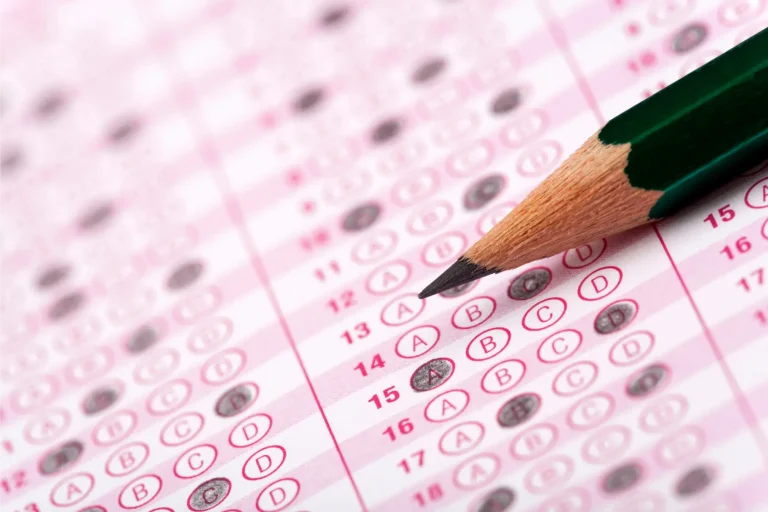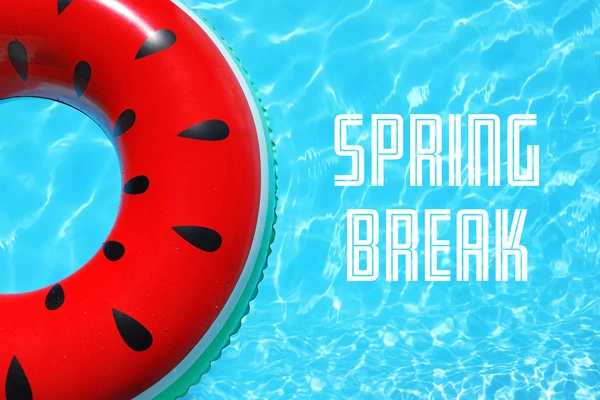Spring Semester (January-May)
1. Prepare for and take the standardized tests

Freshmen and sophomores: Students should focus on preparing for the PSAT/Preliminary SAT, which is the practice version of the SAT. PSAT offers standardized test administration for students in grades 10 and 11. In addition to the PSAT, the College Board also offers the SAT for students in grades 11 and 12. Students who earn good grades on the PSAT also qualify for a National Merit Scholarship – $180 million is awarded each year.
The PSAT is offered every year, and students can take up to 3 PSAT tests each year of high school. However, most students decide to take the PSAT 10 before taking the PSAT. The PSAT 10 is only for 10th graders, and is offered during the Spring of 10th grade.
The PSAT 10 test is excellent for students who want to practice for the PSAT. Additionally, to qualify for the NMSQT (National Merit Scholarship Qualifying Test), students have to take the PSAT in their third year of high school (grade 11, junior year), so the PSAT 10 is a good way to prepare for that.
According to the National Merit Scholarship, the PSAT 10 and PSAT 8/9 are not considered for entry to the National Merit Scholarship Program. The PSAT/NMSQT is the only official route of entry to the National Merit Scholarship Program. Hence, the 2023 PSAT/NMSQT is the qualifying test for entry to the competition for scholarships to be awarded in 2025.
Three versions of the test:
- PSAT 8/9 (8th and 9th graders)
- PSAT 10 (10th graders)
- PSAT/NMSQT (11th graders)
PSAT/PSAT 10 and NMSQT are good opportunities for students to prepare for the SAT during 11th or 12th grade. The PSAT/NMSQT and the PSAT 10 use the same scoring scale. Each section of the test (Evidence-Based Reading and Writing and Math) is scored on a scale of 160 to 760, resulting in a total score range of 320 to 1520.
On the other hand, the SAT has a different scoring scale. Each section of the SAT (Reading, Writing and Language, and Math) is scored on a scale of 200 to 800, resulting in a total score range of 400 to 1600.
Juniors and Seniors: The ACT/SAT and AP tests are for 11th and 12th-grade high school students. Students should decide which test they want to take, the ACT or SAT, in the spring of their 10th-grade year. Juniors should take the first exam in the fall of their 11th-grade year, and the second in the spring of that same year.
Students can also take AP exams during their junior year or earlier to help them get into college. However, if you take your AP exams during the Spring of your 12th grade year, they won’t influence your college admission chances, as all colleges will have completed their admissions processes by this point. As such, taking AP exams during 12th grade is only helpful for getting college credit for introductory classes.
Aralia recommends taking multiple practice tests for all of these exams to identify your weaknesses and areas for improvement. If you need guidance and more practice with test prep, contact Aralia. We will connect you with one of our test prep teachers for tutoring sessions.
2. Focus on your extracurricular activities + establish new ones
All Students: Students should take advantage of the Spring semester to invest themselves in popular extracurricular activities or clubs that interest them. Whether it’s athletics, visual arts, performing arts, academic clubs, or social events – there are plenty of opportunities for passionate students! If you’re a part of a student organization, consider furthering your involvement by taking on a leadership role and contributing to the future of the group. However, if your organization is entirely based on participating in competitions, then you should dedicate your time to prepare and practice to ensure success!
Additionally, you can also start a new organization if your school doesn’t offer any specific extracurricular activities you want. High schools always support student leaders who wish to enrich their peers’ experiences through diverse activities.
However, we strongly encourage you to be discerning in the activities you involve yourself in, rather than over-committing your time and energy to every opportunity available. Select activities which are meaningful for you, and beneficial towards paving a path toward your desired career objectives.
3. Take advantage of your campus resources
All Students: As intimidating as it can be for freshmen entering high school, they should take advantage of their first Spring semester to become acquainted with their surroundings and all of the resources that their school offers so that they can utilize them in the future. Additionally, while getting familiar with the school throughout the years, students should always check in to make sure they’re aware of any new campus resources. At most schools, students have access to a plethora of resources such as international student support services (for example Thanksgiving meals and international holidays), weekend activities reserved specifically for boarding students, and study abroad exchange programs. Make sure you take advantage! In addition to fun activities, students can access the alumni network, participate in workshops and professional events hosted by Career Services, and go on volunteering trips with the entire school. There are also many academic resources that you can use to aid your current academic studies or even pursue extra opportunities, such as peer tutoring or student research programs. Check out 25 Research Opportunities for High School Students!
4. Meet with your counselor
All Students: You should always meet with your academic counselor or advisor to check in on your academic progress, plan for your educational goals, and find appropriate internships. Students should try to meet with their counselor at least once a month to get to know them better. Your academic advisor can write you a better recommendation letter if they have had more interactions and conversations with you over time!
5. Attending college fairs and information sessions
All Students: High school is a time to explore your passions and to prepare for college admission; therefore, it is highly encouraged that you participate in college fairs and information sessions hosted by college representatives during this time. College fairs and information sessions will provide general admission information and allow you to meet the reps in person, ask any questions, and expand your knowledge about your dream schools. First-year students should attend to get an overall feel of the atmosphere and practice asking questions to be better prepared for future years.
6. Visit a college campus
7. Plan your summer
All Students: The spring semester is also a time for you to plan your summer. Depending on your passions and interests, you can fill it with volunteer opportunities, summer courses, internships, traveling, or anything that makes you happy and benefits you in the long run. If you are looking for internships, we have written a guide to help you best prepare for finding one, and writing your resume and cover letter.
Summer (June-August)
1. Enroll in test prep courses
Freshmen, Sophomores, and Juniors: When you still have free time during the summer, we highly recommend enrolling in test-prep courses to gain more practice. Preparing for standardized tests is a very in-depth learning process; students can speed it up by utilizing the guidance of test-prep experts. If you are unsure which credible online tutoring sites to visit, consider Aralia. Our teachers offer more than regular tutors because we are committed to the success and growth of each individual student, and are committed to bringing personalized methods to ensure their success. They are recognized in their field or for teaching at top US high schools and colleges/universities.
2. Building your college list
Juniors: As you prepare to apply for college, be sure to compile a list of the schools that are right for you. When selecting, consider factors such as admission requirements, majors, professors, and research opportunities. You can also divide your list into target schools, reach schools and safe schools based on these criteria. Additionally, attending school visits or information sessions is an excellent way to learn more about each potential institution’s campus life and location so that you can make informed decisions about where you want to apply in the fall!
3. Prepare the college application
Students can prepare for items on the checklist throughout the four years of high school. Students should enrich their resumes during freshman and sophomore years by participating in extracurricular activities and seeking out leadership opportunities while exploring potential colleges and understanding their requirements. Junior year will be the busiest year of the four, as students must continue to perform their best in academics, extracurricular activities, and competitions while also making big decisions about their life after high school. As college is fast approaching, it’s essential for students to begin discussing their financial plans with family/guardians and gather necessary documents during their junior year. Then in the Fall of their senior year, they can polish their applications and finalize any required paperwork to ensure a successful transition into college life.
College Board has released a College Application Checklist that students should consider when preparing for college. We have combined the CollegeBoard checklist with our own to ensure students won’t miss anything during their application process. The link is live here!
4. Take driving lessons
Juniors: By the age of sixteen, you are allowed to have a driving license if you are currently in the U.S. During the summer, we highly recommend taking a permit test and driving lessons to receive your license by the end of the summer. Even if you don’t have a car, having a license is highly beneficial for your future.
5. Plan for the upcoming fall semester and potentially the summer
All Students: All students should spend their summertime preparing for the upcoming semester, including seniors in high school. As rising sophomores, juniors, and seniors, you can always prepare for the best application season possible. We always recommend that students meet with their counselors or academic advisors to discuss summer activities, programs, class schedules, and extracurricular activities. After your senior Spring semester, as a recent high school graduate, you should plan for college and know what campus resources are available. With advanced planning, first-year students will be able to make the most out of their four years in college in terms of academics, internships, and professional development. In this article, we guide you through creating a four-year plan.
Summer is the most fantastic time to catch up or get ahead, so get ready!
If you want to see the Fall checklist for every high school year, we have published Fall Back-to-school checklist articles to help you get off to a great start in the new academic year!










